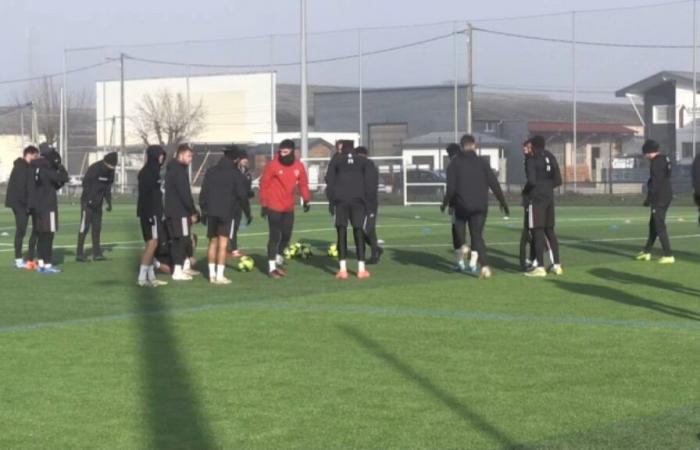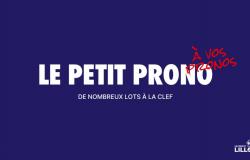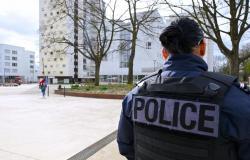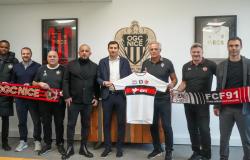The 32nd finals of the Coupe de France this weekend will bring their share of confrontations between Ligue 1 big names and lower level teams… which are becoming more and more professional. Enough to undermine the myth of “small amateur clubs”.
This weekend, the Coupe de France will be in full swing with its share of oppositions, in the 32nd finals, between the professionals and the “little ones” – these “amateurs” from the lower divisions…. who are less so in less. And for good reason. In National 2 (4th level) and even up to National 3 (5th level), everything becomes professional.
Gone, or almost, are those average employees who could only train in the evening after work. Most teams live in a “professional” rhythm, like Bourgoin-Jallieu, a National 3 team which faces the professionals from Martigues (L2) this Saturday at 3:15 p.m. at the Pierre-Rajon stadium.
Players often passed through training centers
Here, in the cold December mornings, there are no sessions at 8 p.m. after a day’s work at a baker, an electrician, a construction company, in an office or after driving miles as a salesperson. It’s a meeting… from the start of the day.
Freddy Morel, Bourgoin’s coach, details a process that he has refined since his arrival this summer but put in place two seasons ago by his predecessor, Éric Guichard. “For the staff, it means arriving quite early in the morning, for the players an hour before the session, so around 9:30 a.m. with a prevention part, then a video part for the team or for a group of players,” he lists. “Then, we continue with the session on the field before a period of recovery and/or weight training. All this takes us to around 1:30 p.m.-2 p.m., the player has finished his activity.”
On the players’ side, often ex-apprentice footballers who spent their adolescence in a training center, it is an extension of a rather appreciable pace of life. “As a father of a family, it’s certainly pleasant,” notes Nicolas Seguin, a former resident of the OL academy who spent time at La Duchère, in particular. “It allows me to be able to take care of my children, quite simply. And then, somewhere, I stay in a rhythm that I have known all my life. My career as a youth was OL. I’ve always known that, training in the morning, whether for young players or older players like me, it allows me to do something else afterwards, for me, a little ‘old’, it allows me to multiply. treatment with physiotherapists. to be able to make a living from football.”
A budget of 1.3 million euros
With a consequence for managers, developing budgets to meet these expectations. Because this operation for a group of around twenty players induces a necessity. “We cannot demand five training sessions in the morning from the players and a match on Saturday and give nothing in compensation to the players. This does not exist, it is not possible”, notes Djemal Kolver, the president of the club who refutes yet the idea of this “professionalization”.
“Yes, we have become semi-professional, we can say that. But we are more semi-amateurs than semi-professional,” he adds.
Whatever the formulation, the heart of the problem remains “the budget, of course”, says the dynamic Berjallien president. “When we train in the morning and no longer in the evening like before, inevitably, we are obliged to compensate whether it is employees, apprenticeships or otherwise. They need that to live because if they train in the morning, it “is that they can’t work during the day.”
So how much? “The section, the first team and the staff, that’s half the budget,” admits the manager without going any further. “We’re not going to go into the figures, it’s a Coupe de France match, we’re going to talk about passion. It’s quite important.” It is rumored that the budget for the club, its 630 members and 40 educators rises to 1.3 million euros (including 7% from ticketing). And therefore, almost 600,000 for the “pennant” team, as they say in amateur circles. To do this, you need to have a well-built team of managers around a general director, a marketing manager and another for sales, without forgetting all the volunteers “including the president”, notes Djemal Kolver.
The fact remains that the model is fragile with no entry of TV rights, minimal aid from the FFF (around 45,000 euros for the N2 and N3 clubs, which pays… the outward journey, but not the return) and from time to time training compensation for players from the club transferred from a French professional club abroad. This was the case for Georges Mikautadze, 140,000 euros for St Priest (N2) when he signed for Ajax or for Nabil Fekir and Vaulx-en-Velin at the time of his transfer to Seville. But not Amine Gouiri, who took his first steps at Bourgoin and subsequently remained “only in France”, from OL to Nice then Rennes.
Salaries between 1800 and 2300 euros monthly net
Player compensation? On average between 1800 and 2300 euros net per month in the Lyon region, without necessarily an apartment or company car. Another important cost center: staff salaries, in large numbers. The other consequence of this semi-professionalization.
Because the players train (almost) in professional conditions: with video analysts (GPS vests on each player), an assistant coach, one for the goalkeepers, two physical trainers (including one to manage the returns of injuries), hours of physiotherapy and even the presence, on Monday morning at the club, of a doctor to manage the sores “on the job”.
In total, nine people work during the week, including six face-to-face and on a daily basis. The coach’s work changes completely, even at this level (National 3). “We have to operate like a professional club, in any case, to try to optimize everything we can do inside the club,” notes Freddy Morel, the coach. “We have certain limits, they can be structural, financial, also on the availability of the people who are in the project. But the idea, in any case, is to optimize all that and to be in movement in a way permanent to move the club forward.”
Is Bourgoin-Jallieu, last year in N2, an isolated case? In the Lyon metropolitan area, everyone tends to follow this pattern, with variations depending on the financial power of the local partners (Bourgoin has 250). A trend accentuated by the overhaul of the championships, a consequence of the increase to 18 clubs in the first three national levels, which was accompanied by a drastic reduction in the number of teams in N2 and N3.
“This movement means that there are more and more players who have had stints in professional clubs, so they have the same work requirements as the level they were able to reach,” notes Freddy Morel. “So, to already attract players who are influential on the team, we must offer a framework which is stimulating. And the second, above all, is the requirement of the level. The formerly ‘CFA2, CFA’, it There was a diversity of players with simply committed and generous player formats. They managed to exist. Today, the factors of performance are much more numerous.
“The player, to perform over time, must train like a pro,” he says.
All players have an agent
Question then, is the amateur world losing its… amateur soul? Because now at this level, all players have an agent. “The player has more and more ambitions,” taps Freddy Morel. Sometimes, it’s to the detriment of the love of one’s club or the passage of a unique club.” Its president insists. “No, that’s precisely what we try to keep,” explains Djemal Kolver. “When we have a transfer window, we try to recruit ‘regional’ and I recruit people first. There are certain values that we seek. If when I speak with the player, he immediately mentions money, that stops. If he talks to me about infrastructure, the project, who is going to play with him, the coach, the game project, our values, then I start to become more and more interested in him.”
Nicolas Seguin sees it as a link, pleasure. “When I hear ‘amateur’, I hear ‘pleasure’. Today, when I come to training, it’s to see my friends, it’s to play ball. I think we We all still get up with a smile on our faces when we know that we are going to play football. Above all, it’s our passion. It’s really the pleasure above all.
It’s also a question of generation, explains technician Freddy Morel, who since 2010 and his visits to Ain, Aurillac and Corsica, has seen an XXL evolution in his work. “We went from ‘doing everything’ to ‘ensuring that everything is done’, that is to say from the moment when I started solo in the region to today with tasks distributed among several deputies.”
An evolution without return
Could he work with just one deputy today at this level? “No,” he cuts in. “Our posture has evolved just like the management aspect. Everything is linked. The slightly directive mission of the coach from before, who controls everything, who decides everything, is over. It can work punctually, but in duration, it no longer works. We must strive towards gaining height with the players. It no longer works. Today, we need to delegate. skills that we do not master and trusting the people who want and can join our staff and I think that the way of delegating, the way of surrounding yourself also reflects on the group, and trusting is better than being afraid. of everyone.”
The machine will not go back, judges Freddy Morel. “It is also an evolution that football has brought with the development of skills, the development of parameters on the video, on physical preparation, on mental preparation. And finally, it is a dynamic which is installed. It does not I won’t go back, I don’t think.”
Does this raise the sporting level? “I am convinced that this rhythm is still more suitable than training in the evening at 8 p.m. after everyone has had their day’s work under their belts. I think that qualitatively, it is still more pleasant. And I I think we still work better when training in the morning. It’s still royal. We can push further in our preparation than with an evening training schedule.
It remains to be seen whether this quasi-professionalization will allow the amateurs to bring down the pros… Last year, only two teams achieved this feat during the 32nd finals of the Coupe de France.






